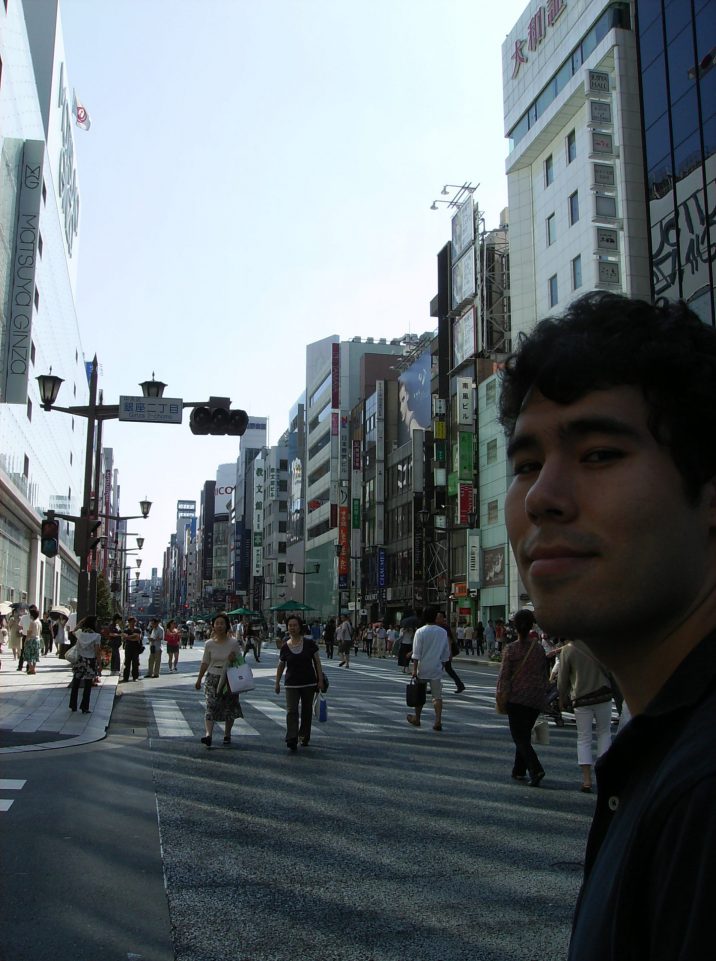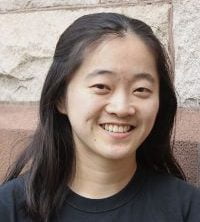The last time the CMS newsletter In Medias Res spoke with Nick Hunter, in the summer of 2006, he was an undergrad saying goodbye to CMS. “I owe a lot to the CMS community,” he told us then. “And for that, I just want to say, ‘Thanks.'” We thought it was time to catch up with him, to see what it is exactly that CMS undergrads go on to do–and how they get there…
In Medias Res: For those of us who didn’t know you as an undergrad, tell us a little about yourself.
Nick Hunter: I was a double major in Comparative Media Studies and Economics. I’m a quarter Japanese, three-quarters Caucasian, but didn’t figure out that first fraction until the middle of college. I grew up in New York/New England but am currently happily living in Tokyo. I’m a gamer, a learner, an analyzer, a problem solver. Oh, and I’m happy.
IMR: Why choose CMS as your major? How did you come to it?
NH: I couldn’t have avoided it, even if I had tried. Growing up, my parents both worked for major broadcast networks, so whenever they had friends from work over, I would sit at the dinner table and be inundated with conversation about the current state of television, news, and media at large. I also spent much of my youth playing videogames (alone, with friends, and with my father), and by the time I reached MIT, I was committed to getting into the games industry.
It was only natural then when I was shopping classes that I saw Intro to Media Studies (then listed as a Literature course) and thought, “Hey, this seems like it would be pretty cool.” Unfortunately it didn’t fit my schedule, but I decided to attend the first lecture just to see what it was all about. William Uricchio was teaching that semester, and he painted a picture of the wide range of topics and issues that would be covered in the course, and it felt like I was a kid again, sitting at the dinner table. It felt like home.
The following Independent Activities Period [a time for short, informal classes between the fall and spring semesters], I stumbled into a seminar on the trans-media properties of Lord of the Rings. I was enthralled by the discourse, and it cemented my decision to become a part of CMS. I met Kurt Squire (then department research manager), who was on the panel to represent the games side of LoTR. After it was all over, I approached him and after going over some of his points, I asked, “What can I do to get involved?” He smiled and said, “We’ll think of something.”
IMR: What did you end up doing as a major?
NH: As you might suspect, much of my course work was focused on games and interactive media. However, more so than what went on in the classroom, it was my UROP working with Philip Tan, Matt Weise, and Brett Camper that had me almost perpetually in Building 14. We worked on The Education Arcade on a project called Revolution that simulated events that took place in Colonial Williamsburg. It was a test of how one might do a more humanities style educational game, rather than a math or science game that relied on rote drill and practice techniques.
The coursework was important; it exposed me to many pieces of media that I probably would not have experienced otherwise, and forced me to take ideas and theories that I had floating around in my head and put them concretely into writing. That said, I think that I managed to get the most of out my CMS education because I spent so much time just hanging around the department, engaging in random discussion with other students, grad students, and professors that just happened to be around. CMS is a not just a degree; it’s a vibrant community of thinkers and doers, and that’s what makes it so special.
IMR: What role did your degree play in choosing (and landing) your first job out of school? What advice would you give current majors?
NH: It’s kind of the other way around. I chose my degree because I wanted to be prepared to go work in games, preferably in a developer capacity. I flirted with computer science, but it ultimately was too much a sidebar from what I wanted to focus on–the design and meaning of games.
The important thing that current majors must understand is that networking and making connections with other people is of the utmost importance when finding a job in media. This does not mean handing out your business card to as many people as you can find at a conference or trade show. It’s about making genuine connections with people that are currently working in media, getting to know them, and letting them get to know you. This will make it easier for them to think of you when an opportunity arises, and it will also give you a better idea of what it might be like to work with them. So get out to conferences and trade shows, meet lots of people, strike up conversations, have a beer (if you’re over 21) with them, and get to know them.
Particularly when it comes to the production of new media, personal connections and ties play a major role in decision-making. You might read the subtext there as “politics,” but the fact of the matter is that when there are many (potentially subjective) unknowns, it’s basically human nature to seek and create a group consensus. Understanding the other people involved and the perspectives they bring to the table makes it easier to cut through the nominal issues and find a compromise that deals with the core issue at hand.
IMR: What do you do now that reflects your academic experience?
NH: Currently I am working as a consultant in Tokyo for EA Japan’s Marketing and Sales department. The responsibilities change almost on a daily basis, but the through line is how do we anticipate consumer needs and educate them about our titles. Some of that pulls on the work I did in economics, but a lot of the critical thinking that I do has to do with putting myself in the consumer’s shoes and figuring out how to communicate relevant information to them. CMS does an incredible job of training you to look for those other perspectives, and that has been an invaluable skill set in my professional career.





